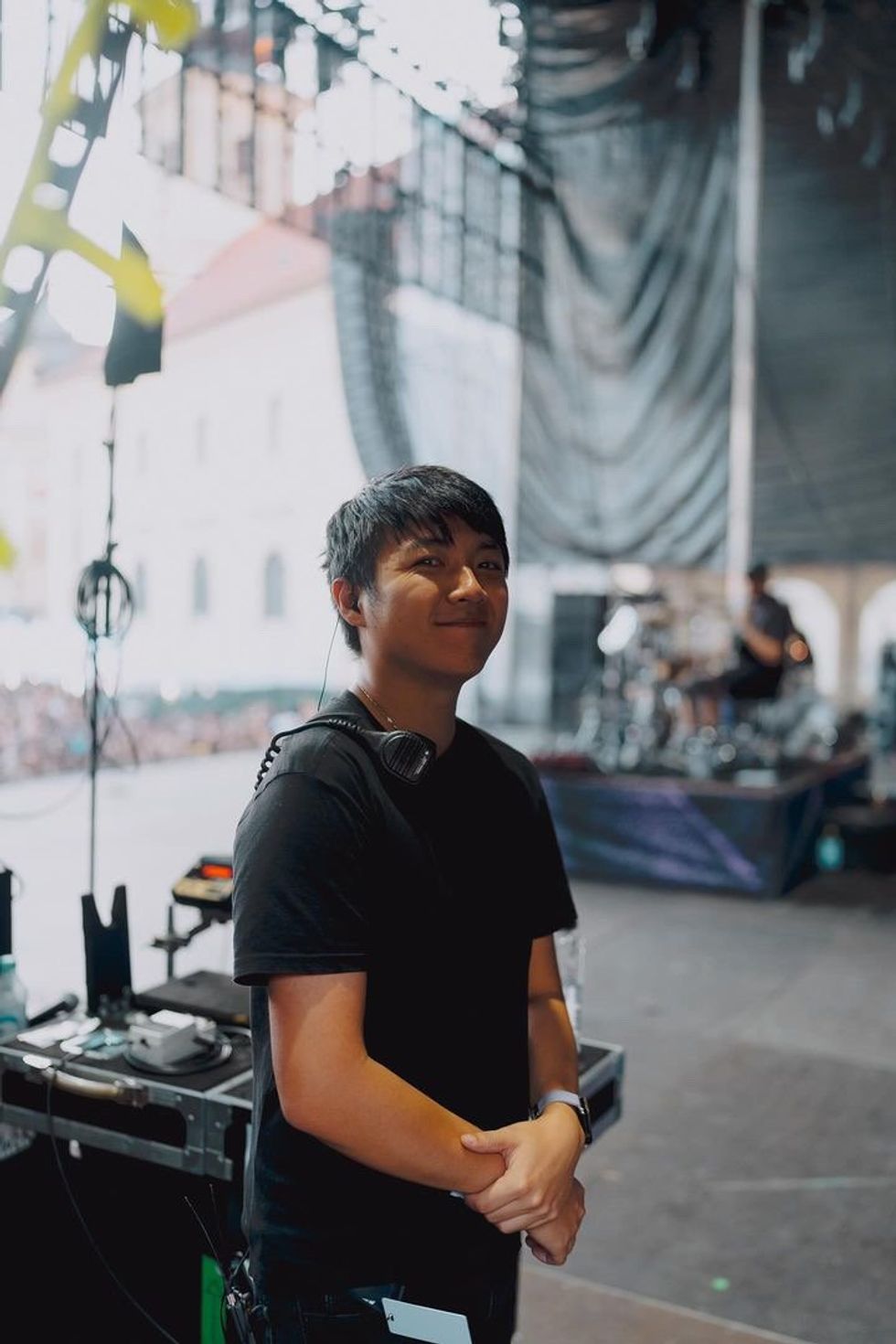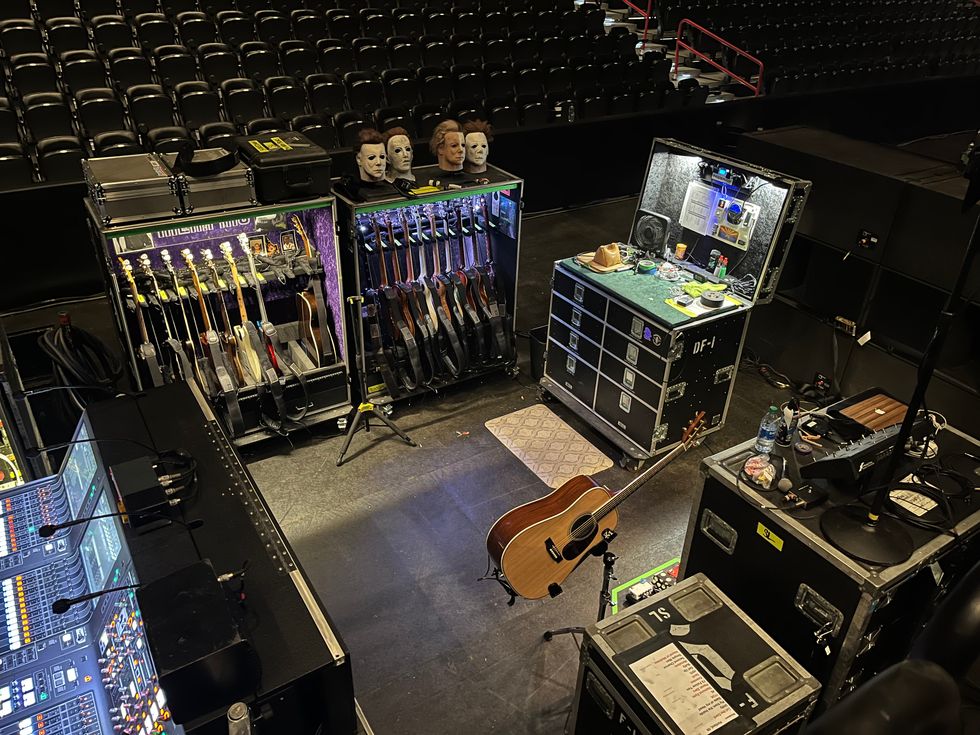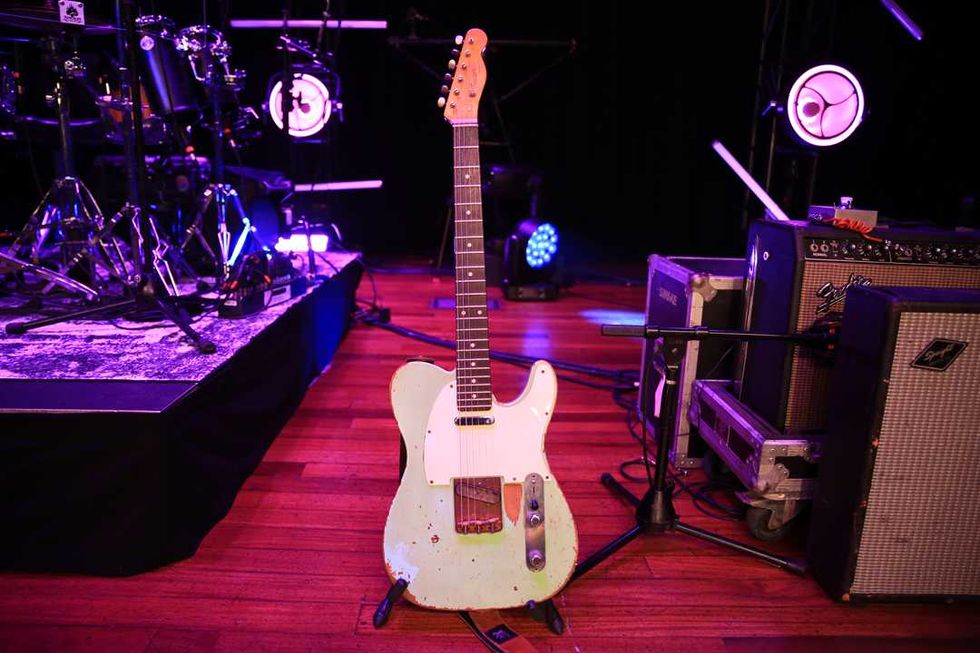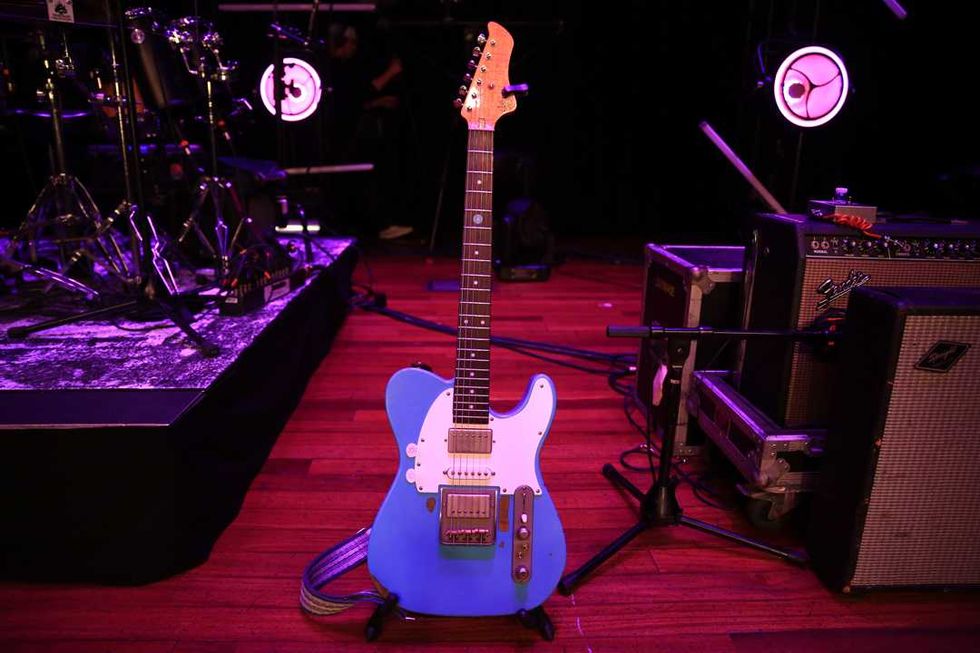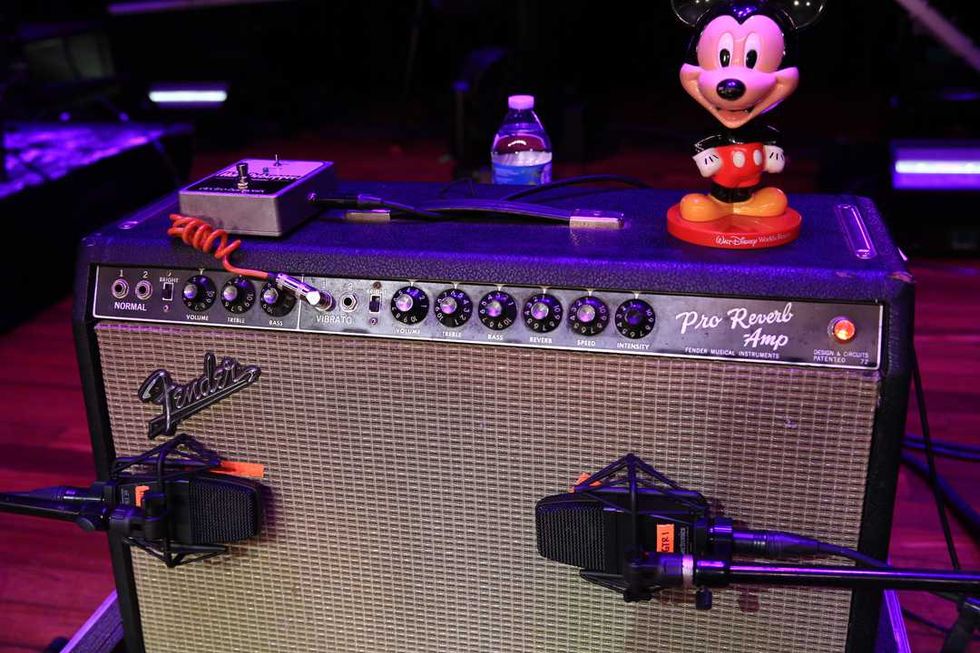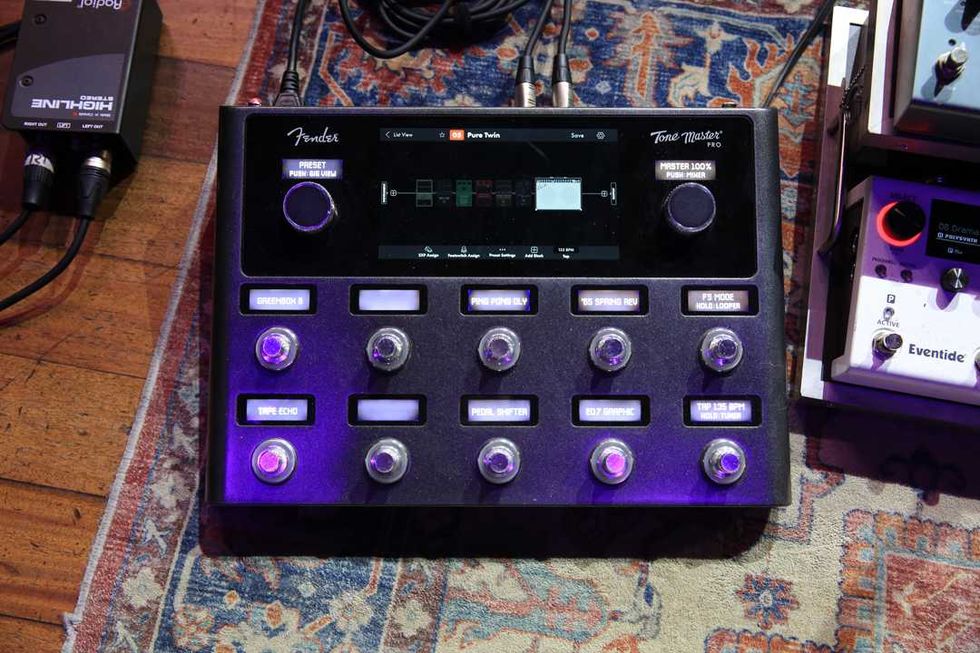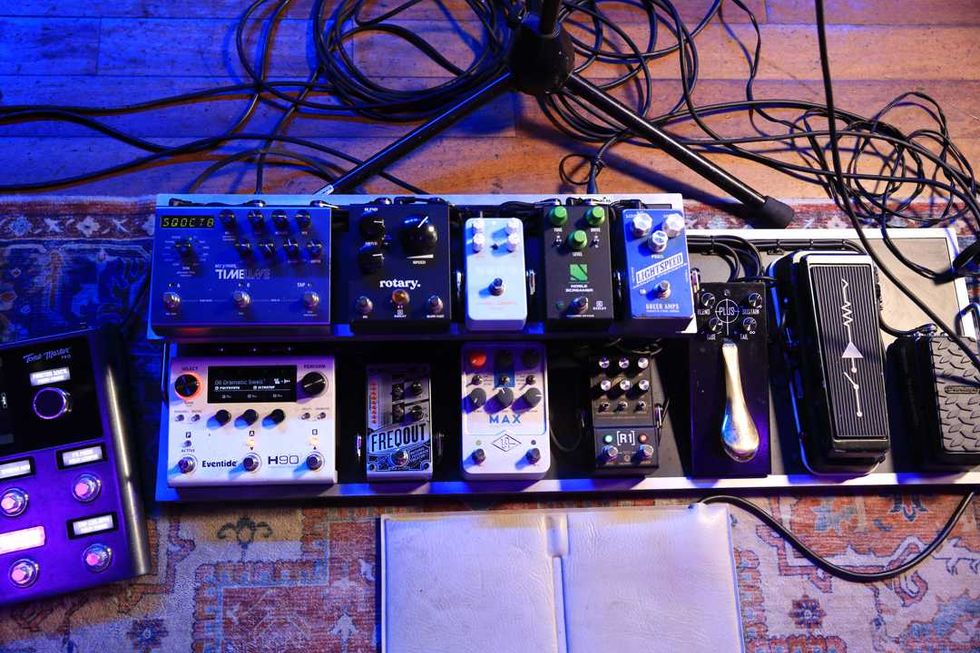Over a career that spans almost four decades, Marty Friedman made his mark as a guitar hero with his playing on Megadeth's iconic albums, including the classics Rust in Peace and Countdown to Extinction, and as the co-founder of Cacophony—a shred-metal duo with Jason Becker (whose career was tragically cut short after he was diagnosed with ALS). But there's a whole 'nother side of Friedman that many might not be aware of. In the Land of the Rising Sun, where he's lived since 2003, Friedman is a huge television personality who has appeared on over 700 TV shows. In fact, Friedman has even been dubbed "the Ryan Seacrest of Japan."
Essentially, Friedman is having his cake and eating it, too. He's still a guitarist par excellence, and his latest release, Tokyo Jukebox 3, features exciting instrumental arrangements of popular hits from Japanese idol culture. To put this rather strange marriage of influences in context for a Western perspective, it would be akin to someone like Steve Vai covering Backstreet Boys hits. "Nothing wrong with being strange [laughs]," says Friedman. "But yeah, that's a very good American analogy. I'd love to hear Steve Vai cover a Backstreet Boys song. Those Backstreet Boys songs are absolutely wonderfully crafted pieces of music, and Steve Vai is an absolutely wonderful guitarist, so to hear him play those kinds of great pieces of pop music, his interpretation, would be of very high interest to me. If you notice, the music that I chose is very well crafted in the first place, and then I totally destroy it and build it back up from the beginning, keeping the essence of what I like about it very much intact."
Tokyo Jukebox 3 is the third in Friedman's Tokyo Jukebox series, which showcases his affinity for J-Pop. "In Japanese pop music, there's absolutely no genre laws at all," he explains. "You might have a totally sappy ballad right next to a totally dark, gruesome heavy metal song, and then a real cheerful disco-type song, all within the same artist. I like that freedom and the lack of stigma to a particular genre. In American music, it's either heavy metal, pop, dance music, R&B, or hip-hop. The genres might collaborate but they don't really collaborate in the mainstream very much. The other thing I like about Japanese music, as compared to American music, is the melody is top priority—it takes an even higher priority than the abilities of the singer! In America, many times in mainstream music, a vocalist is a super-vocalist, and you wouldn't even want to attempt to try to sing like that because you'd just be making a fool of yourself. You don't have people dancing around the house trying to sing like Adele, because she's too amazing of a singer. But in Japanese music, it's the magic of the voice, not the technique of the voice, so anybody can sing the song. It's kind of doable."
The recording of Tokyo Jukebox 3 began in January 2020, and Friedman had hoped to release it by May. Then the pandemic hit. This setback turned out to be a blessing in disguise. "I was like, 'Oh yes, I can always find something to polish up, something to throw out and replace with something better,'" recalls Friedman. "When I'm actually playing and recording, it's hard to really listen objectively, but after you've done a few mixes of something, you listen to it while you're jogging and you hear things that are just not there when you have your instrument in your hands. Just because you played something that is difficult or maybe feels like a big achievement doesn't mean listening to it is any good at all. The proof is in the listening—when you listen back to it, do you get chills or not?"
"The other thing I like about Japanese music, as compared to American music, is the melody is top priority."
Friedman was appointed a Japan Heritage Ambassador by the country's government in 2017 and has played the opening ceremony of the annual Tokyo Marathon since. In an unofficial capacity as ambassador, his albums like Tokyo Jukebox 3 serve to bridge a cultural gap. "I think it might be a way to introduce [my fans] to certain Japanese artists and songs that I like," he says. "By the time I'm done with my arrangements of the songs, they just sound like my music anyway. It's kind of all through my filter, so even if you don't know the origin of the song, you could listen to it on face value as just another one of my songs. If they hear it and if they like it, they might be interested in the origin of it."
Of course, as an ambassador of heritage, Friedman does have more responsibilities than just being a figurehead. He was commissioned by the Japanese government to compose the "Japan Heritage Official Theme Song," which he performed with the Tokyo Philharmonic. This composition—which features a cello solo that Friedman wrote for his wife, Hiyori Okuda—appears on Tokyo Jukebox 3 and was quite an undertaking. "I had to write for a 70- to 80-piece orchestra, and I wanted to come up with something that was kind of everyday Japanese. A lot of times when foreigners try to compose a piece of music that sounds Japanese, they come up with something that sounds like what's in the background of a sushi restaurant or martial arts movies," says Friedman. "I just prayed that the people who asked me to compose it weren't going to turn it down and say, 'Okay, we need a Japanese person to do this. You have no idea what you're doing. Let's scrap it.'"
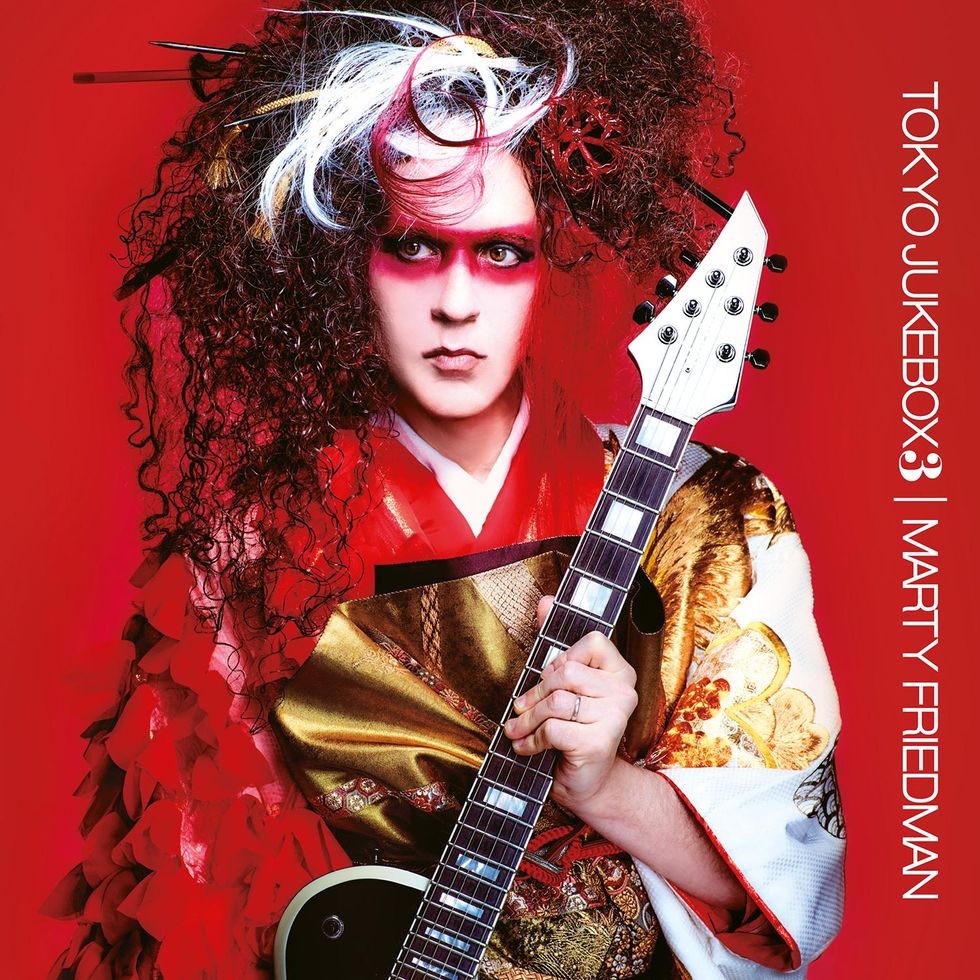
TIDBIT: Friedman says the photo shoot for his latest album's cover was "a huge undertaking. It was done with so much energy, love, and expertise. There were just so many experts on the scene—the kimono expert, the kabuki makeup expert, regular makeup expert, hair expert, photography expert, graphic designer expert, all in the same room doing this thing."
But composing the piece was only the beginning. After it was completed, Friedman had an even more daunting task: He had to play the song in front of Japanese-government officials. "That was nerve-racking, man," admits Friedman. "It's nothing like playing for record company people. With record company people all you do is turn the volume up in the studio and anything sounds great. But this is different—the government people were there with their suits! Luckily, everybody liked it."
When we spoke, I mentioned the composition's pungent but beautiful and ear-catching bends. "Pungent is a great word," says Friedman. "I'm going to use that from now on. I find that, not only with bending but with any note that you have, especially since I play so many melodies, you have to come up with interesting ways to interpret them. If you're always interpreting them with the same kind of phrasing all the time, all melodies would get redundant. I like to have hundreds of options to approach things and it seems like when I do bends, people respond to them. They notice them more than a lot of the other things that I might put more attention to. That might be a thing that sticks out and is quite pungent [laughs]. It stinks. It really has an aroma, good or bad. I tend to do that and that's one of the things that people pick up on."
Marty Friedman's Gear
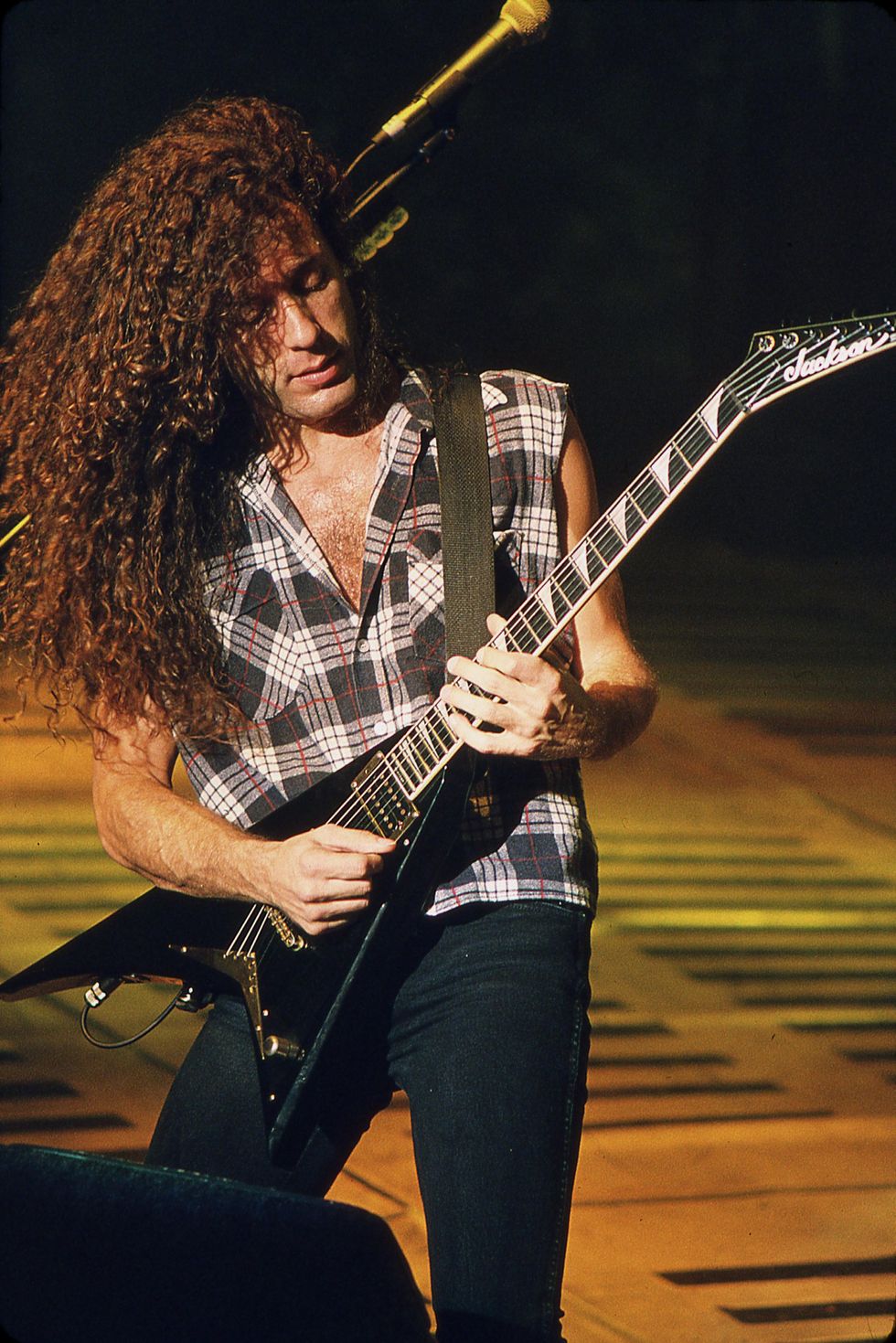
Friedman played a variety of Jackson guitars during his tenure with Megadeth, including the Randy Rhoads model in this 1992 photo.
Photo by Frank Forcino/Frank White Agency
Guitars
- Jackson MF-1 with two EMG MF (Marty Friedman Signature) humbuckers
Amps
- ENGL Marty Friedman Inferno E766 (100-watts)
- ENGL 4x12 cabinets
Strings and Picks
- D'Addario NYXL (.010–.046)
- Dunlop 1 mm
Effects
- Boss ES-8 Effects Switching System
- Boss CH-1 Super Chorus
- Boss DD-500 Digital Delay
- Maxon AF-9 Auto Filter
- Ibanez TS9 Tube Screamer
- MXR M135 Smart Gate
- MXR Phase 90
- MXR M87 Bass Compressor
"The Perfect World," the sole vocal track on Tokyo Jukebox 3, is a "self cover" and was actually originally released in 2018 as the theme song for the Netflix anime series B: The Beginning. The song went straight to the top of the charts, and then took an unexpected detour. "It was one of those music business things that happens, and when it happened it was a drag," says Friedman. "Between myself, Netflix, and the creators of that anime, the song took a year in production to get to where it was just right. Then all the stars aligned, and it was perfect—it hit No. 1 on the iTunes chart the day it came out, and everybody was just fantastically happy. The very next day, there was a shakedown at the record label and the team working on my record was all gone. There was a whole new staff and whole new plans for everything, and all promotion for the record was completely shelved. So, I really felt like there was unfinished business with that song. It was almost like a revenge version."

The latest version of Friedman's signature model Jackson has the same MF-1 appointments but comes with a prismatic purple mirror finish.
Photo by Susumu Miyawaki
The cover image for Tokyo Jukebox 3 features Friedman in kabuki makeup, decked out in a traditional Japanese Kimono. "It came out like one of these wonderful album covers from the '70s," says Friedman. "I'm just really proud of that cover." Now, in advance of any pitchfork-wielding wokesters ready for their next "cultural appropriation" hit piece, Friedman is quick to point out that the album cover was the brainchild of a Japanese crew, and has been very well received in Japan. "They love it—it was their idea," he recalls. "It was the product of many meetings with the best graphic designers in Japan. It was a huge project, a huge undertaking. It was done with so much energy, love, and expertise. There were just so many experts on the scene—the kimono expert, the kabuki makeup expert, regular makeup expert, hair expert, photography expert, graphic designer expert, all in the same room doing this thing."
Marty Friedman on Black Sabbath's "Into the Void" - Hooked
The former Megadeth lead guitarist and shredmeister remembers being dumbstruck by Master of Reality's imposing sound.
As both a guitar god of the highest order and a mega-celeb TV star in Japan, Friedman still refuses to simply rest on his laurels. "I always say the best thing is the thing I haven't done yet," he confesses. "I'm trying to raise the bar on my own work, so it's like a personal best kind of thing. I'm really proud of the most recent video I did for 'Makenaide.'" That particular video features a super tearjerker ending with Jason Becker, in the center of a massive Zoom collage of over 120 people from Friedman's Facebook fan group, holding a sign that reads "Never Give Up On Yourself."
Bach, Sarasate and "Japan Heritage Official Theme Song" - Marty Friedman / Gen Ohta / OEK
Marty Friedman is one of the few electric guitarists that has the experience and technical ability to successfully perform with a full orchestra—a task fraught with an endless array of potential landmines. Here, he performs the music of Bach and Pablo Sarasate in addition to his own composition, "Japan Heritage Official Theme Song," on which he imbues the uplifting melody with some pungent yet beautiful bends. He's accompanied by the Orchestra Ensemble Kanazawa in this April 2021 performance.














 Zach loves his Sovtek Mig 60 head, which he plays through a cab he built himself at a pipe-organ shop in Denver. Every glue joint is lined with thin leather for maximum air tightness, and it’s stocked with Celestion G12M Greenback speakers.
Zach loves his Sovtek Mig 60 head, which he plays through a cab he built himself at a pipe-organ shop in Denver. Every glue joint is lined with thin leather for maximum air tightness, and it’s stocked with Celestion G12M Greenback speakers.








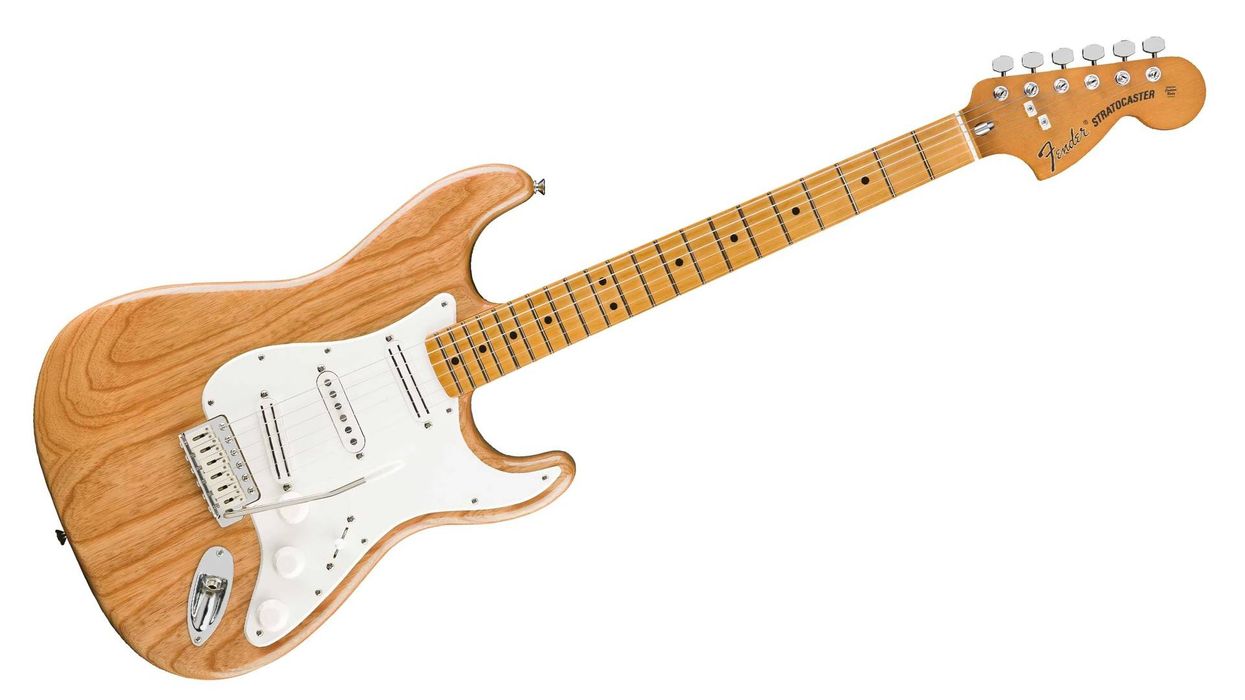
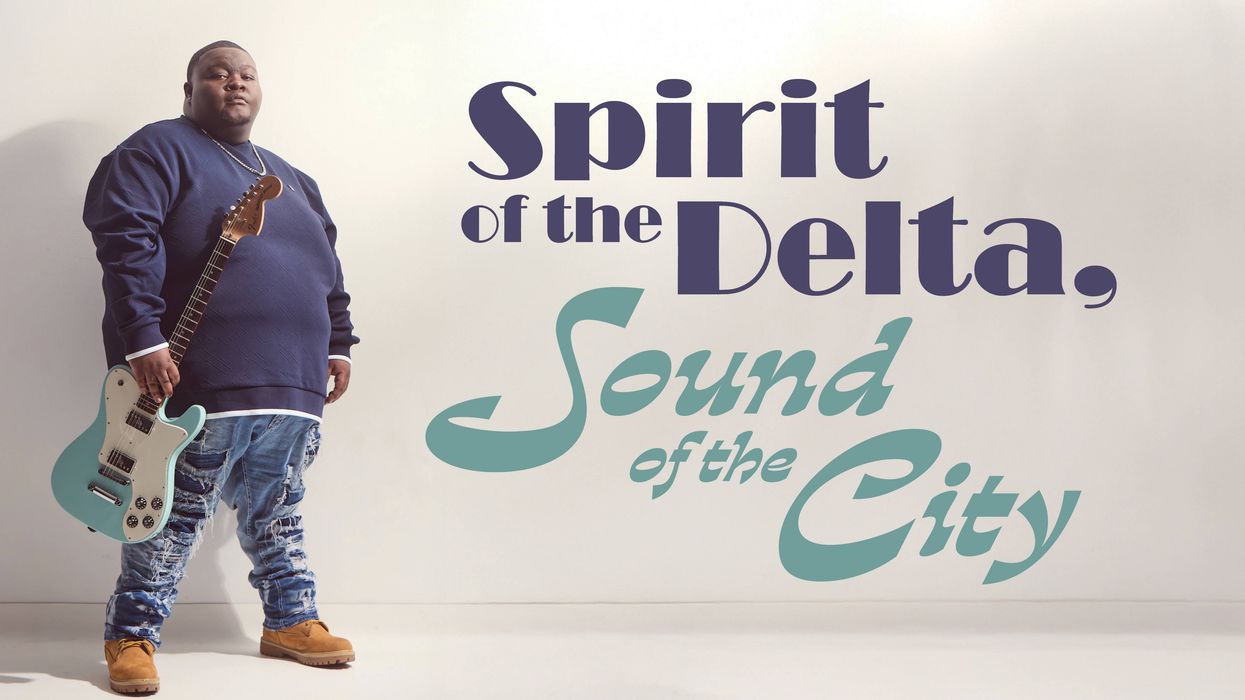
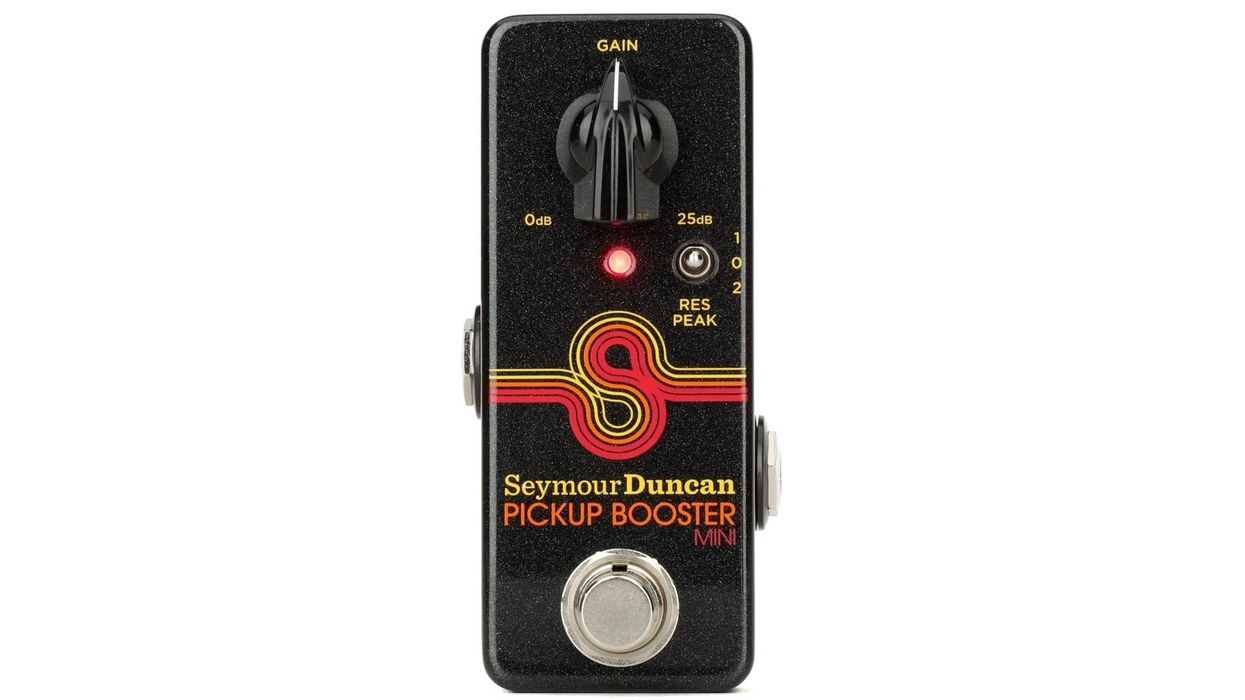
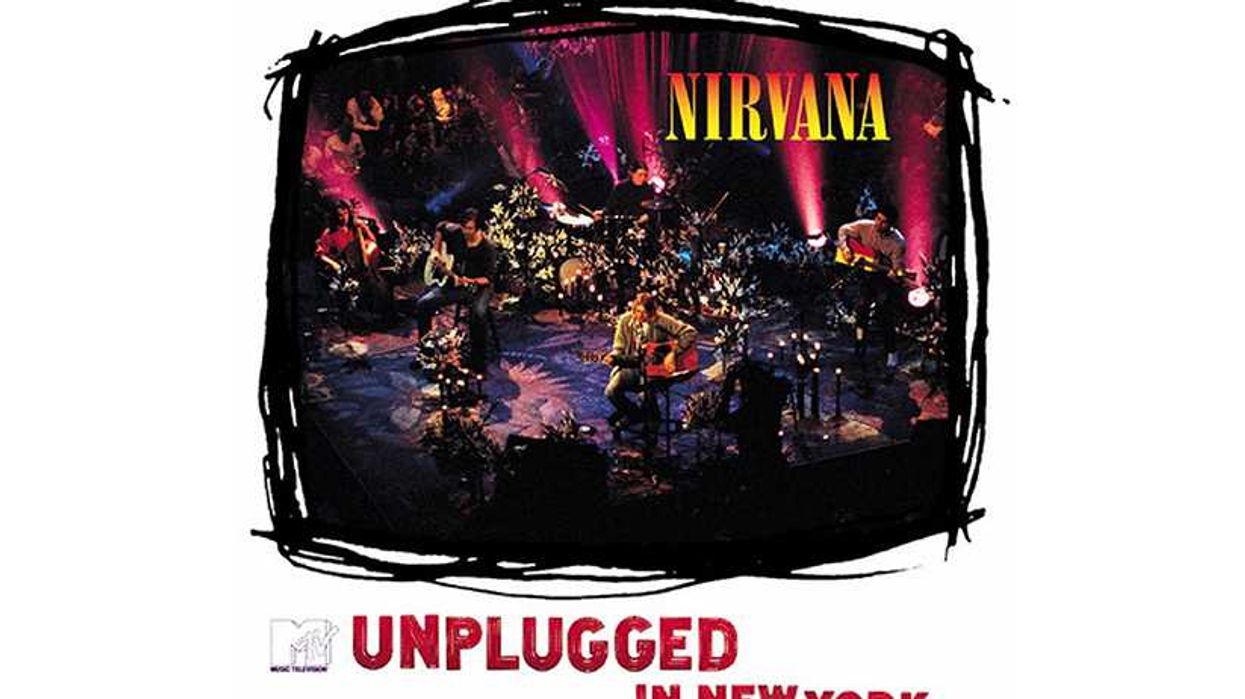
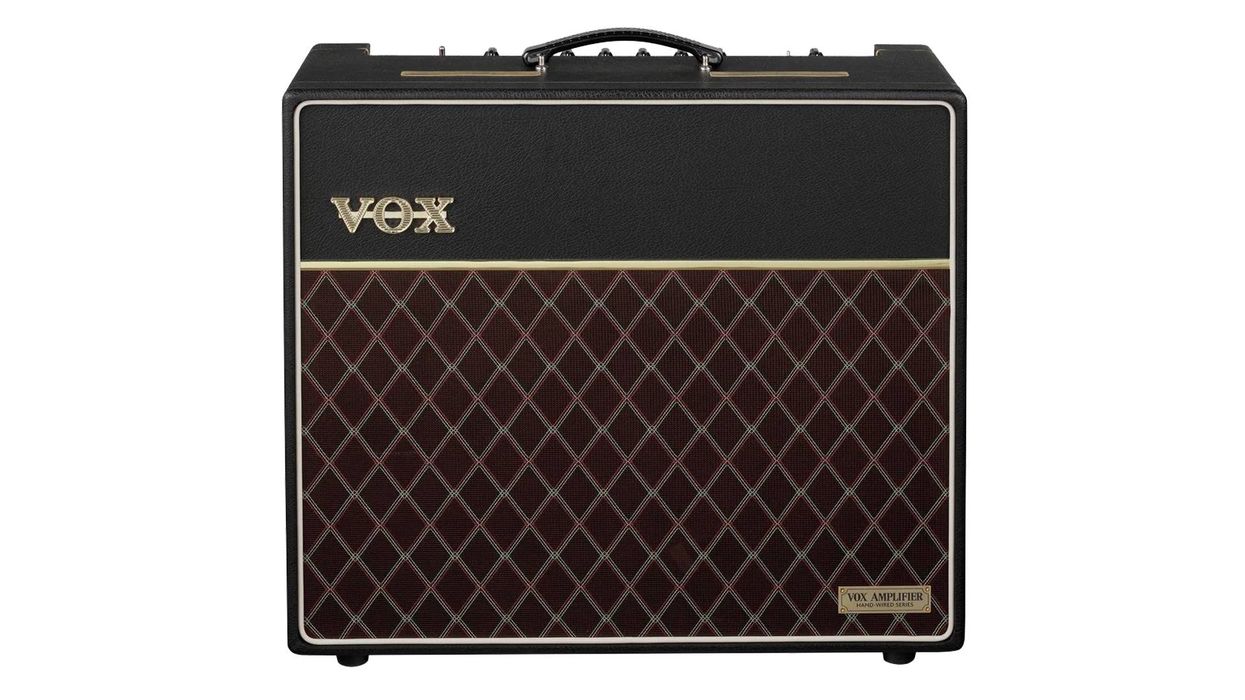





![Devon Eisenbarger [Katy Perry] Rig Rundown](https://www.premierguitar.com/media-library/youtube.jpg?id=61774583&width=1245&height=700&quality=70&coordinates=0%2C0%2C0%2C0)
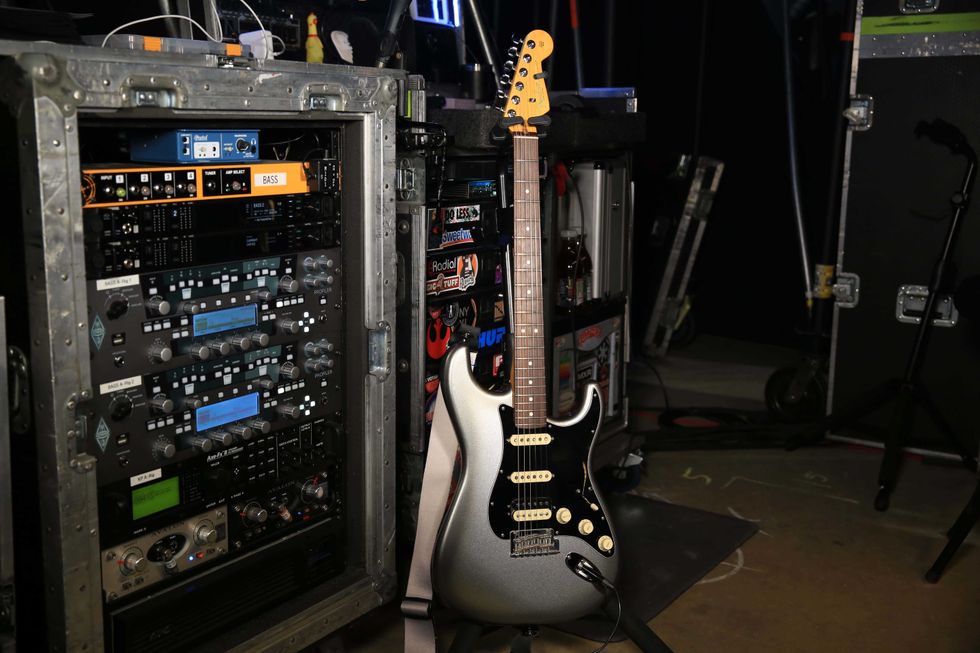

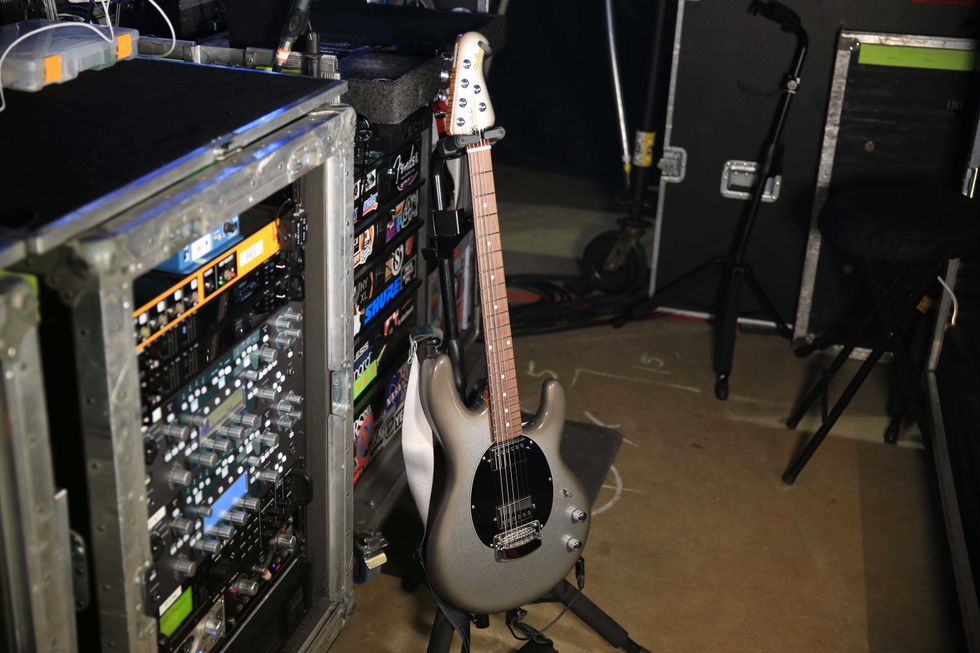
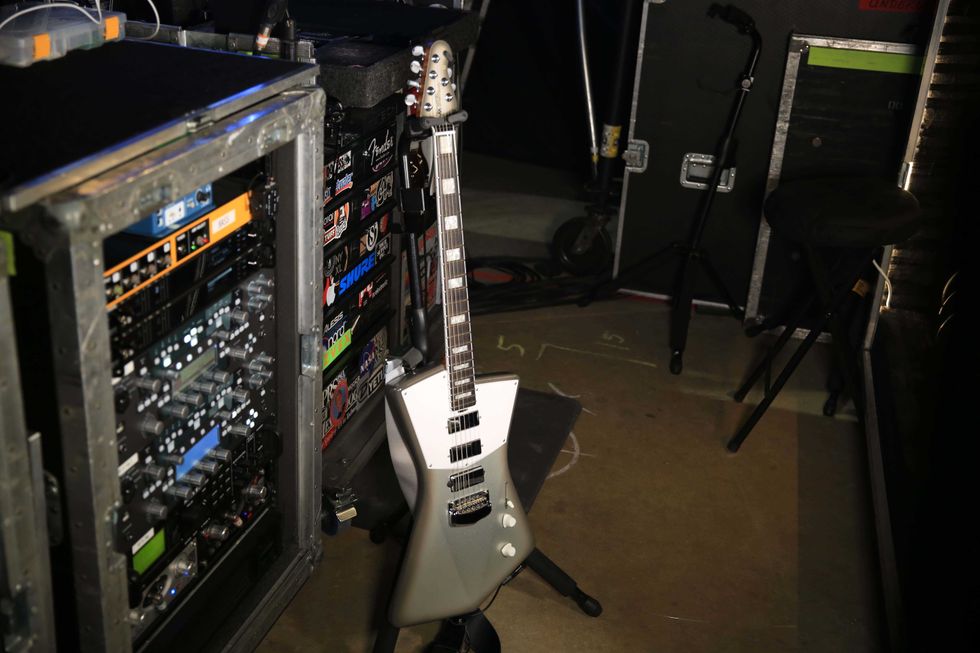
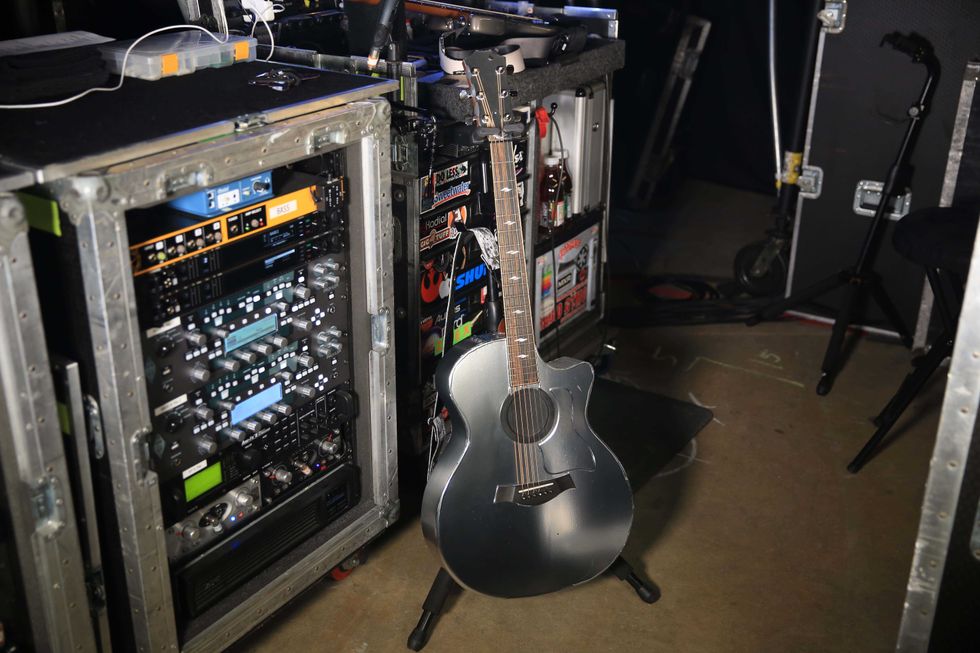
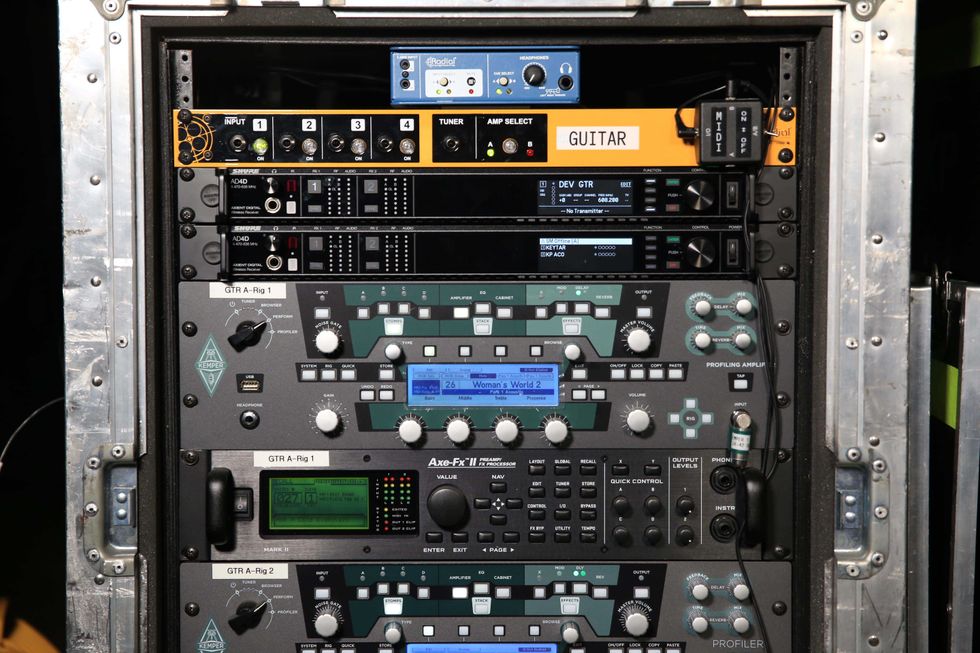


 Luis Munoz makes the catch.
Luis Munoz makes the catch.